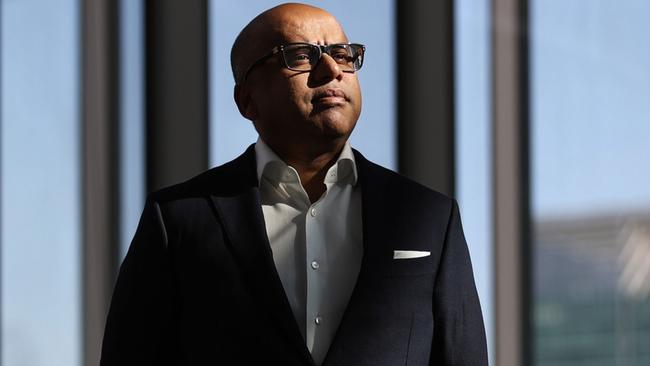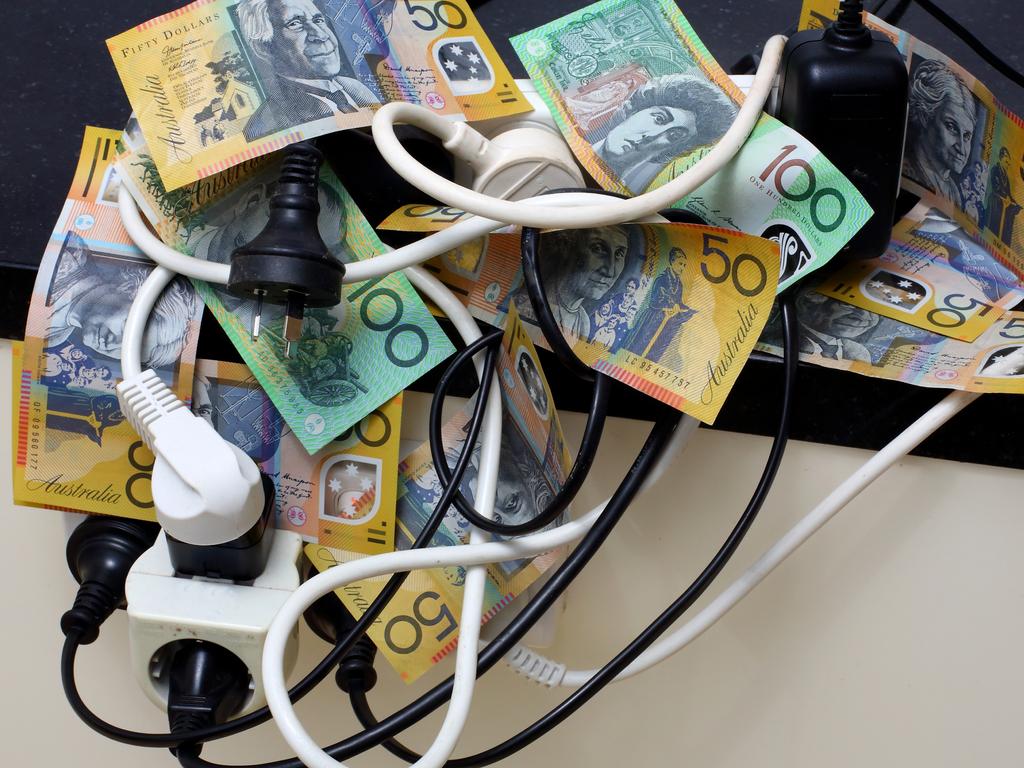Sanjeev Gupta slashing costs, jobs as coronavirus steel and aluminium consumption plummets
Global tycoon’s GFG Alliance to cut 30pc of global costs and an unspecified number of jobs in response to market downturn.

Sanjeev Gupta has announced savage cuts and job losses across his global metals and mining empire as documents show the British entrepreneur is seeking to borrow fresh cash to keep his loss-making Australian steel and manufacturing operations alive.
The global tycoon’s GFG Alliance will remove 30 per cent of its global costs and shed an unspecified number of roles as it responds to the market downturn to put the business on a “firm economic footing”. GFG employs 35,000 people across 30 countries.
Financial records obtained by The Australian show Mr Gupta has already pumped $115m of new money into his struggling local operations so far this year, and is seeking loans worth another $175m to keep them afloat beyond 2021 — even as he talks up the prospects of a $1bn overhaul of his South Australian steelworks.
The hefty cuts and calls on new funds in Australia will further fuel criticism that Mr Gupta’s rapid global growth, opaque financing and promises to revitalise struggling operations like Whyalla remain highly vulnerable to an economic downturn.
Financial reports filed by one company within Mr Gupta’s global empire show his Australian operations are moving deeper into debt even as the British-based businessman talks up a $1bn “green transformation” of the ageing Whyalla steelworks, bought from the ashes of Arrium for about $700m a few years ago.
Records show his Australian arm — including OneSteel Manufacturing, Arrium Mining Services, Whyalla Ports, Tahmoor Coal and Liberty Primary Metals — had drawn down $429.7m in loans through their British parent company as of June 10, with $115.2m flowing in additional assistance from Mr Gupta in 2020.
The accounts lodged with the Australian Securities & Investments Commission are for the tycoon’s Tahmoor coal operations in NSW, but include a “going concern” notice giving details of the financial assistance to the broader Australian group from its British parent.
Financial records lodged in Britain indicate the group’s major financier is Greensill Capital, which extended Mr Gupta’s Australian empire a $1bn short-term financing facility in February 2019. That facility was extinguished in August, British filings show, but appears to have been replaced by another lending agreement with Greensill.
The Australian accounts make it clear Tahmoor Coal’s directors, which include Mr Gupta, believe the consolidated group will be able to continue operating for at least the next year, but flagged a “material uncertainty” about its position beyond that “given the need to secure additional funding and/or further shareholder support in order to continue as a going concern”. The cuts follow a public relations push by the industrialist over his plans to spend more than $1bn on upgrades to Liberty’s Whyalla steel plant in South Australia as part of promises to produce “green steel” in the state.
Mr Gupta rescued the Whyalla steelworks from financial turmoil in 2017 and said on Wednesday he had put in place extra funding to ease pressure on what remained a challenged business.
Mr Gupta had trumpeted the new plans, saying the “exciting plan will not only transform the Whyalla business into an internationally competitive steel manufacturer, it will be our first primary steel plant to be transformed to Greensteel, helping fulfil our ambition to become the world’s largest carbon-neutral steel producer by 2030”.
But by Thursday the entrepreneur was flagging delays to the plan and potential job losses across its global operations — although it is understood Mr Gupta has pledged to unions no jobs will be cut at Whyalla, some positions are likely to be lost at other Australian operations.
“We have a very ambitious investment program to achieve our Greensteel, GreenAluminium and carbon-neutral ambitions, but there will be difficult decisions in the short term as we seek to make efficiency gains to respond to the challenged market conditions brought about by this crisis. I deeply regret that this will necessitate a reduction in roles in certain cases,” he said.
“As a result of the COVID-19 pandemic, demand from steel-consuming sectors in certain regions has dropped by between 20 per cent and 40 per cent — an impact which is likely to continue for 12 to 18 months, compounding an already challenging market. The market for aluminium globally has been impacted, too, with inventories climbing,” Mr Gupta said.
GFG Alliance will be putting in place plans for local sites over the next three months.
“While our primary focus will be on operational improvements and overhead optimisation, where we are forced to make reductions in roles we will consult closely with employees, and will do everything possible to mitigate the impact. Through our Workforce Solutions initiative, we will strive to provide every blue collar worker impacted with an employment offer as an alternative to voluntary redundancy,” Mr Gupta said.
Mr Gupta, the son of an Indian commodities trader, has used his Liberty House group for a rapid global expansion of steel production and renewable energy developments known as the GFG Alliance. However, questions over the funding models and transparency of his operations have been raised in the industry.
A year ago he bought the mothballed Georgetown steel plant in the US and restarted operations last June. In January 2019 GFG agreed to buy Europe’s biggest aluminium smelter, Dunkerque, from Rio Tinto for $US500m, adding to other deals, including Tata Steel mills. In Australia Mr Gupta shot to prominence after rescuing Arrium’s financially troubled Whyalla steelworks in South Australia along with the purchase of a NSW coking coal mine Tahmoor. from Glencore and the promise of $1bn of investments in solar, wind, battery and pumped-hydro generation to support the now profitable steel business.
He is also said to have eyed the potential acquisition of Victoria’s troubled Portland aluminium smelter.





To join the conversation, please log in. Don't have an account? Register
Join the conversation, you are commenting as Logout